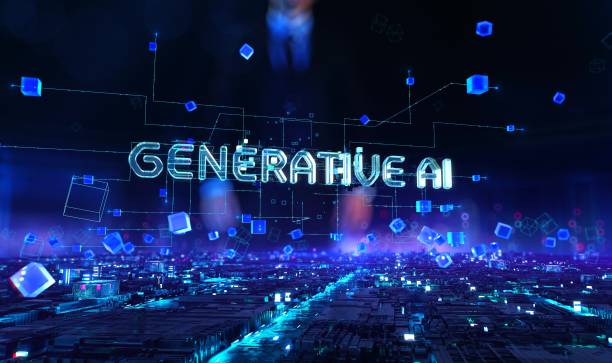Decoding Global Talent Report 2024: Adoption of GenAI High in Malaysia Despite Security, Reliability Concerns
Jobstreet by SEEK’s Decoding Global Talent Report 2024 Highlights Mixed Reactions About the AI Revolution across Malaysian Workplaces

Amid evolving workplace priorities, three-quarters of talent in Malaysia believe Generative AI will cause some disruption to their jobs and roles in the next five years. The new Decoding Global Talent Report 2024: GenAI Edition found that the majority of local talent are already experimenting with, or regularly using, GenAI in both their professional and personal lives, positioning the country for transformative AI adoption across industries.
The Decoding Global Talent Report 2024 reveals 79% of surveyed professionals anticipate some changes in their work due to AI, with 28% expecting significant impacts that could alter or eliminate their roles. This has driven half of Malaysian workers to recognise the need for upskilling, with many seeking adequate support from employers to navigate these changes.
Generative AI’s Growing Influence in Malaysia
AI’s growing influence is evident in how Malaysians use it professionally and personally, with 60% incorporating AI into various activities. Notably, the Decoding Global Talent Report 2024 found that 44% of Malaysians use GenAI monthly, surpassing the global average of 39% and matching the Southeast Asian average. The top sectors where GenAI is most utilised include digitalisation, data science and AI (71%), IT (63%), and marketing and media (60%) sectors, while its adoption remains lower in the transport, logistics and supply chain (36%), legal and law (34%) and services and hospitality (32%) industries.
Younger workers (18–24) are 50% more likely to use GenAI regularly compared to those over 45, highlighting an age-related gap in technology adoption. In their personal lives, Malaysians predominantly use GenAI for accessing factual information (58%), skill development (51%), and language translation (40%), with 37% relying on AI to solve general problems and seek advice, exceeding regional and global averages.
Despite the increased use of AI, 40% of Malaysians and 41% of Southeast Asians remain unfamiliar with GenAI, indicating a significant opportunity for increased awareness and education, according to the Decoding Global Talent Report 2024.
A Readiness to Reskill Amidst Job Security Concerns
As AI integration accelerates, 79% of Malaysian professionals foresee changes in their roles, with 28% expecting significant transformations that could threaten job security. Professionals in sectors such as digitalisation, AI, and public service express the most concern (34%) while 33% of workers in legal and healthcare fields believe their jobs will remain largely unaffected, due to the lower necessity of GenAI adoption in their work.
Half of the workforce expects a need for upskilling, and 21% foresee substantial job changes requiring new skillsets. In response, 57% of professionals are open to retraining to stay competitive, while only 5% fear their jobs may completely disappear due to GenAI.
Resources Needed to Overcome AI Roadblocks
While there is a strong desire to learn about GenAI, many Malaysians face challenges in effectively utilising this technology. Key concerns include difficulty in crafting prompts (55%) and accessing credible data (23%). Malaysians report more difficulty with prompt writing compared to regional and global peers, potentially limiting GenAI’s effective use.
To address these barriers, 55% of Malaysians want clear guidance from employers on the skills needed for the future, while 23% seek more accessible learning programmes and courses. Additionally, 14% would appreciate financial support for training, while other needs include more time for upskilling (8%), employer support (8%), reliable internet access (8%), and government support (8%).
“Globally, we are seeing rapid evolution of AI and how it can be applied to specific industries and roles,” said Nicholas Lam, Acting Managing Director at Jobstreet by SEEK. “It’s encouraging to see many Malaysians already incorporating AI into their personal lives. This foundational understanding can easily translate to the workplace, reflecting a maturing, future-ready perspective on AI. For employers, these findings emphasise the importance of equipping talent with the resources and support to navigate AI adoption while maintaining productivity and employability.”
Evolving Work Preferences in Malaysia Uncovered by Decoding Global Talent Report 2024
The report also explored broader work preferences beyond AI adoption. The majority of Malaysians prioritise stability and growth, with 70% preferring reputable companies offering career progression and 67% seeking stable roles with a good work-life balance. Additionally, interest in part-time roles for pursuing side projects is low (7%).
A full-time, five-day workweek is still the preferred arrangement for 71% of Malaysian professionals, a stark contrast to the global preference of 60%. Younger workers, or Gen Z (18-24) show a high preference for this structure, but they tend to shift towards part-time work as they grow older and gain experience.
Recruitment experiences significantly influence job offer acceptance, with discriminatory questions or poor interviewer rapport being major deterrents (56%), along with slow employer responses (41%) and insufficient mental health support (45%).
What Employers Can Do to Prepare Talent
To facilitate AI adoption across industries, the Decoding Global Talent Report 2024 recommends that employers do the following:
- Provide stronger on-the-job training and AI-specific guidance to enhance skill development and ensure new skills are effectively integrated into career paths.
- Encourage strategic upskilling and reskilling programmes that align with business objectives and offer flexible learning opportunities.
- Enhance the employee experience with AI by regularly evaluating technology’s impact on workforce requirements and ensuring job security.
“The recent Budget 2025 initiatives on artificial intelligence represent a crucial step towards positioning Malaysia as a global technology leader. With significant investments in AI applications across sectors, companies must view GenAI as a complement to the workforce rather than a replacement,” added Lam.
“Jobstreet by SEEK remains committed to empowering employers and employees with the insights and resources needed to navigate the evolving landscape and maximise the potential of AI-driven solutions.”
Download the full Decoding Global Talent Report 2024 at https://my.employer.seek.com/market-insights/decoding-global-talent-ai-2024.




